
When your customer service tech stack doesn’t talk to itself, your agents end up talking in circles.
Playvox is built for quality assurance and performance management—but without the right integrations, teams still waste time tracking down context, toggling tabs, and manually syncing systems.
The fix? Smart Playvox integrations that connect your CRM, dialer, helpdesk, or data tools directly into your Playvox environment. These connections reduce repetitive tasks, speed up responses, and improve the visibility that service and sales teams rely on to deliver consistently excellent experiences.
And the time savings are real: according to McKinsey, employees spend nearly 1.8 hours per day—almost 20% of their time—just searching for information or tracking down coworkers 1. That’s an entire day, lost every week.
In this article, we’ve curated 10 of the most impactful Playvox integrations based on real-world use cases. Each one is designed to eliminate friction and multiply your team’s output—no extra dashboards required.
Key Takeaways
- Playvox integrations unlock real-time QA automation by connecting call data, tickets, and CRM updates to your evaluation workflows.
- Teams using Playvox integration tools see faster coaching cycles, better agent visibility, and less manual effort in quality assurance.
- From CRMs to ecommerce, integrations like Salesforce, Shopify, and CloudTalk help QA teams centralize context and personalize feedback.
- Playvox supports API, webhook, and native integrations, making it flexible enough to fit both plug-and-play setups and custom enterprise stacks.
- With the right Playvox integration strategy, you reduce tool switching, eliminate data gaps, and deliver sharper customer experiences at scale.
No more tab-switching. Just seamless workflows.
What Is a Playvox Integration?
A Playvox integration connects your quality management platform with the rest of your tech stack—like CRMs, helpdesks, call systems, or analytics tools—to automate workflows, sync data, and reduce manual overhead.
Instead of switching tabs or copying over data, integrations allow Playvox to pull and push information across systems in real time—resulting in cleaner operations, faster feedback loops, and better customer service outcomes.
Here’s what they do:
- Automate workflows: trigger emails, assign tasks, or update records when someone takes action
- Sync data: make sure contact info, deal status, and activity history stay up to date everywhere
- Trigger actions: set off alerts, create follow-ups, or move pipeline stages based on what happens in other tools
One high-impact example is CloudTalk’s integration with Playvox. It allows your team to:
- Automatically log call data and recordings for QA scoring
- Trigger evaluations based on missed calls, call duration, or tags
- Link phone interactions to tickets, agents, and feedback workflows
Most Playvox integrations are powered by native apps, APIs, or prebuilt workflows available through automation tools.
Want Playvox to talk to your dialer, VoIP, and helpdesk?
The 10 Best Playvox Integrations to Improve CX and Efficiency in 2025
Playvox shines when it’s not working alone. By integrating it with your CRM, helpdesk, calling solution, or analytics platform, you can automate QA workflows, reduce context switching, and deliver smarter coaching and better customer experiences.
Below are 10 high-impact Playvox integrations your team should consider in 2025—each selected to solve a real-world use case and boost operational efficiency.
Integration Summary Table
Software
Category
Why It’s Useful with Playvox
CloudTalk
VoIP/AI
Native calling, conversational AI, AI Voice Agents and call transcripts
Salesforce
CRM
Visualize pipeline movement, deal flow, and sales KPIs
HubSpot
CRM
Connect deal stages and support logs to agent evaluation triggers
Pipedrive
CRM
Track sales interactions and link call history to QA workflows
Google Sheets
Reporting/Analytics
Export QA data for reporting, dashboards, or performance tracking
Shopify
Ecommerce
QA ecommerce support interactions based on order/ticket data
Front
Shared Inbox
Evaluate multichannel agent activity (email, chat, SMS) via Playvox
LiveAgent
Helpdesk
Assess ticket resolution quality and support timeliness in one view
Zendesk
Support Platform
Link ticket satisfaction and QA scores for more actionable coaching
Microsoft Teams
Collaboration Tool
Push scorecards, alerts, or QA reviews directly into team workflows
1. CloudTalk
CloudTalk is a modern cloud-based phone system built for sales and support teams. Its Playvox integration connects call data with QA workflows—so you can link recordings, trigger evaluations, and sync performance insights automatically.
Use Case
Use CloudTalk to log call recordings, outcomes, and agent activity into Playvox. Trigger scorecards and evaluations in real time, without switching tools.
Benefits
- Automate QA scoring based on real call activity
- Give evaluators access to call context instantly
- Reduce tab-switching and boost coaching efficiency
Key Features:
- Real-time call monitoring
- AI-Powered Conversation Intelligence
- Call recording and playback
- Sentiment Analysis
Pricing:
CloudTalk offers flexible plans tailored to business needs. With each of its plans offering more value than its competitors:
- Lite: $19/user/month (Americas)
- Starter: $25/user/month
- Essential: $29/user/month
- Expert: $49/user/month
- Custom: Pricing available upon request

2. Salesforce (CRM)
Salesforce is a leading CRM used by global sales and service teams. The Playvox Salesforce integration links CRM activity with agent performance data—giving QA teams visibility into the full customer journey.
Use Case
Sync contact interactions, cases, and call notes from Salesforce to Playvox to enable smarter coaching and targeted feedback based on real sales behavior.
Benefits
- Evaluate agents using Salesforce data (cases, deals, calls)
- Trigger QA workflows from CRM stage changes
- Streamline context sharing between sales and QA teams
Key Features
- Map custom fields between Salesforce and Playvox
- Trigger evaluations from contact or opportunity activity
- Connect Playvox scorecards to Salesforce service metrics
Pricing:
Salesforce offers various pricing tiers:
- Sales Cloud Essentials: $25 per user/month
- Sales Cloud Professional: $75 per user/month
- Sales Cloud Enterprise: $150 per user/month
- Sales Cloud Unlimited: $300 per user/month
Salesforce dialer pricing guide
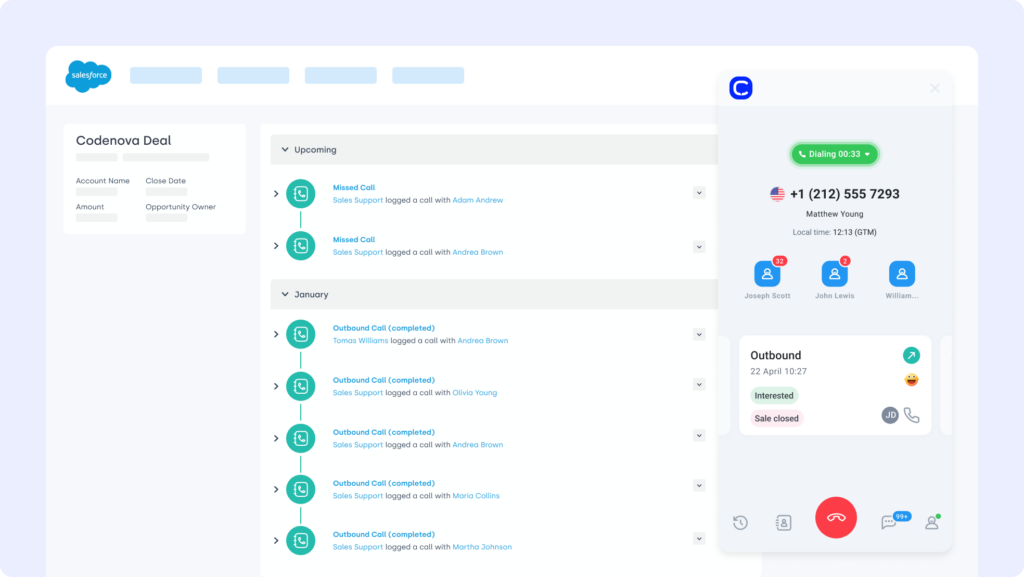
3. HubSpot (CRM)
HubSpot is a CRM and marketing platform trusted for inbound automation. The Playvox HubSpot integration allows QA teams to assess agent performance based on deal changes, support tickets, or email interactions.
Use Case
Use HubSpot data—like deal stages or ticket outcomes—to trigger Playvox evaluations or scorecards, giving coaches more insight into customer interactions.
Benefits
- Sync lifecycle stages with QA workflows for better timing
- Evaluate based on engagement history, not just calls
- Eliminate manual log transfers between platforms
Key Features
- Map HubSpot contact and deal fields to Playvox
- Trigger evaluations from ticket resolutions or form fills
- Connect campaign behavior to agent scorecards
Pricing:
HubSpot offers a free CRM plan, with paid tiers depending on your team’s size and needs. See HubSpot pricing for details.
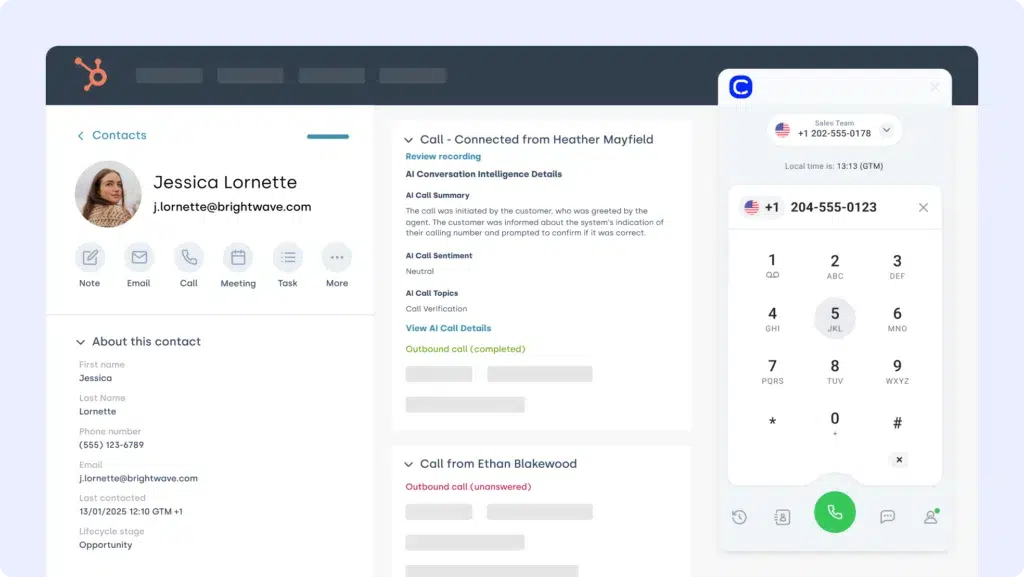
4. Pipedrive (CRM)
Pipedrive is a sales-centric CRM known for its clean pipeline view. The Playvox Pipedrive integration helps QA teams evaluate agent performance based on deal movement, activity logs, and customer interactions.
Use Case
Sync contact notes, calls, and deal stages from Pipedrive to Playvox. Trigger scorecards or coaching sessions when a deal hits key stages.
Benefits
- Assess agent effectiveness by tracking deal outcomes
- Automate QA based on activity volume or pipeline velocity
- Unify coaching with real sales performance data
Key Features
- Two-way sync of contact and deal history
- Trigger QA reviews when deals are created, updated, or lost
- Map Pipedrive fields to Playvox evaluation criteria
Pricing:
Pipedrive offers flexible plans based on team size and needs:
- Essential: $14.90/user/month
- Advanced: $27.90/user/month
- Professional: $49.90/user/month
- Power & Enterprise: Custom pricing
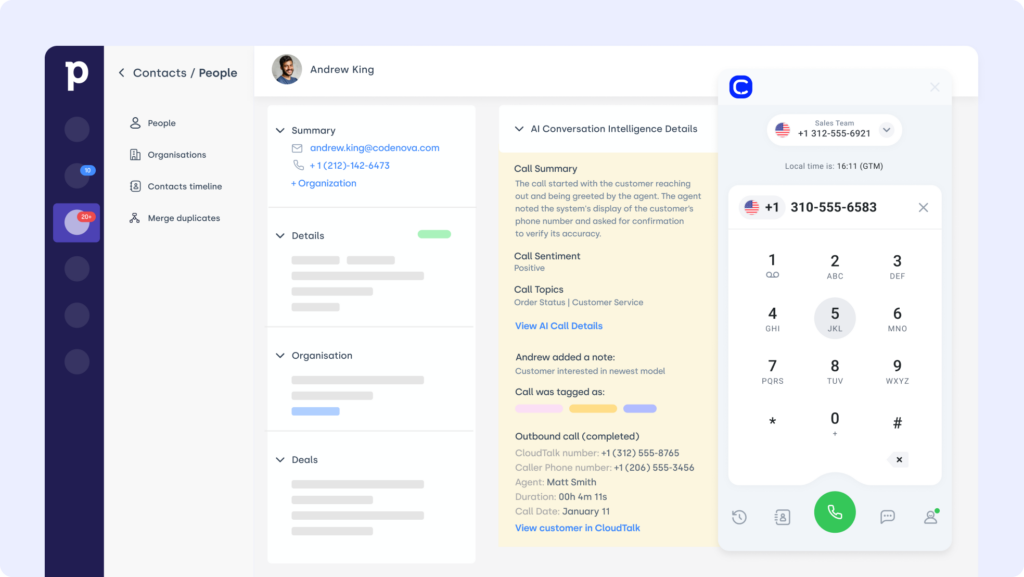
5. Google Sheets
Google Sheets is a versatile reporting and data-tracking tool. The Playvox Google Sheets integration allows teams to export QA scores, evaluation logs, or agent performance data for flexible reporting and analysis.
Use Case
Automatically push Playvox scorecards and coaching data into Sheets to build dashboards, track trends, or share QA results across departments.
Benefits
- Create custom QA dashboards without extra tools
- Share performance insights across teams or leadership
- Back up scorecard data for audits or compliance
Key Features
- Schedule auto-exports of Playvox data to Sheets
- Filter data by team, evaluator, or evaluation score
- Build real-time reports with conditional formatting
Pricing:
Free with Google Workspace. Advanced features may depend on add-ons.

6. Shopify (Ecommerce Platform)
Shopify powers ecommerce operations across the globe. The Playvox Shopify integration enables teams to evaluate support quality based on customer orders, return requests, or support chats.
Use Case
Use Shopify data—like order status or customer type—to trigger Playvox evaluations for support reps handling post-purchase conversations.
Benefits
- Automate QA scoring based on customer interactions
- Tie performance feedback to real ecommerce outcomes
- Improve service on high-value transactions with context
Key Features
- Sync order and ticket history from Shopify to Playvox
- Trigger QA sessions when returns, refunds, or chats occur
- Tag evaluations based on product or purchase value
Pricing:
Shopify offers several plans depending on store size and feature needs:
- Basic: $39/month
- Shopify: $105/month
- Advanced: $399/month
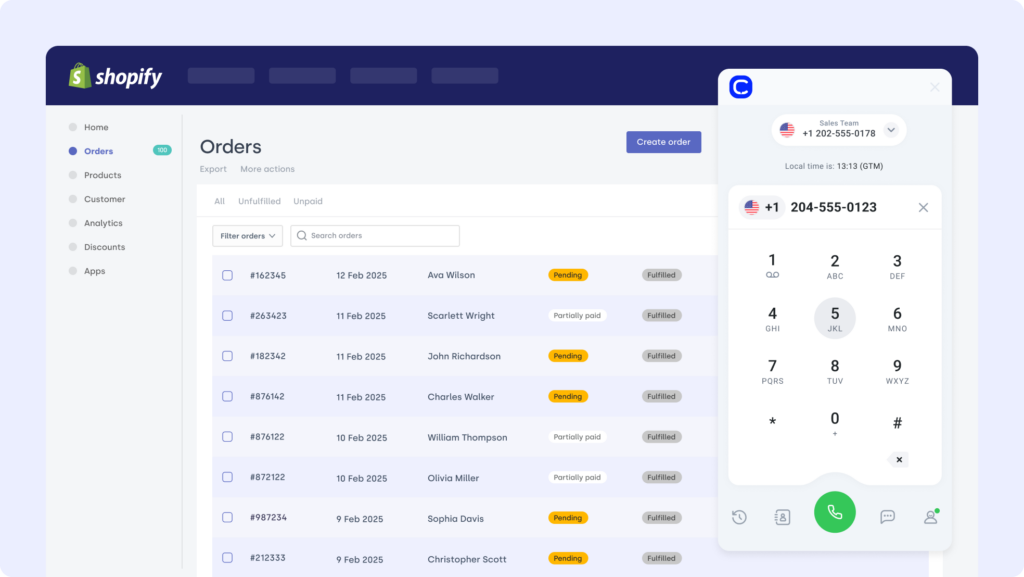
7. Front (Shared Inbox Platform)
Front is a collaborative inbox that blends email, SMS, and chat in one workspace. The Playvox Front integration helps QA teams evaluate conversations across all customer channels—without leaving the inbox ecosystem.
Use Case
Automatically trigger Playvox evaluations based on Front activity like replies, tags, or SLA breaches—ideal for multichannel support teams.
Benefits
- Assess agent performance across email, chat, and SMS
- Trigger QA workflows without leaving Front
- Unify multichannel coaching in a single scorecard
Key Features
- Sync Front tags and reply metadata to Playvox
- Launch evaluations from SLA events or message tags
- Map channel type to specific QA forms
Pricing:
- Starter: $19/user/month
- Growth: $59/user/month
- Scale: $99/user/month
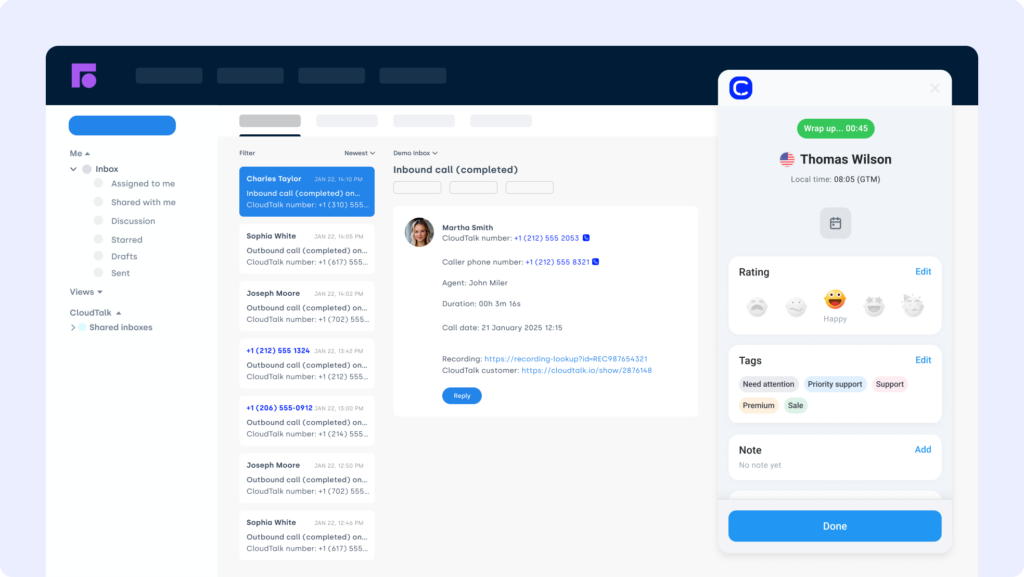
8. LiveAgent (Helpdesk Software)
LiveAgent is a full-service helpdesk platform for email, chat, and ticketing. The Playvox LiveAgent integration lets you measure service quality directly from support interactions—no tab-switching required.
Use Case
Trigger Playvox scorecards when LiveAgent tickets are resolved, escalated, or tagged. Perfect for tracking first-contact resolution or time-to-close metrics.
Benefits
- Automate QA based on support outcomes
- Tie evaluation criteria to SLA data and ticket fields
- Get a full view of agent performance from resolution to tone
Key Features
- Pull ticket resolution data into Playvox
- Trigger evaluations on ticket close, urgency, or type
- Tag evaluations by channel or support tier
Pricing:
LiveAgent offers transparent pricing for support teams:
- Small Business: $9/agent/month
- Medium Business: $29/agent/month
- Large Business: $49/agent/month
- Enterprise: $69/agent/month
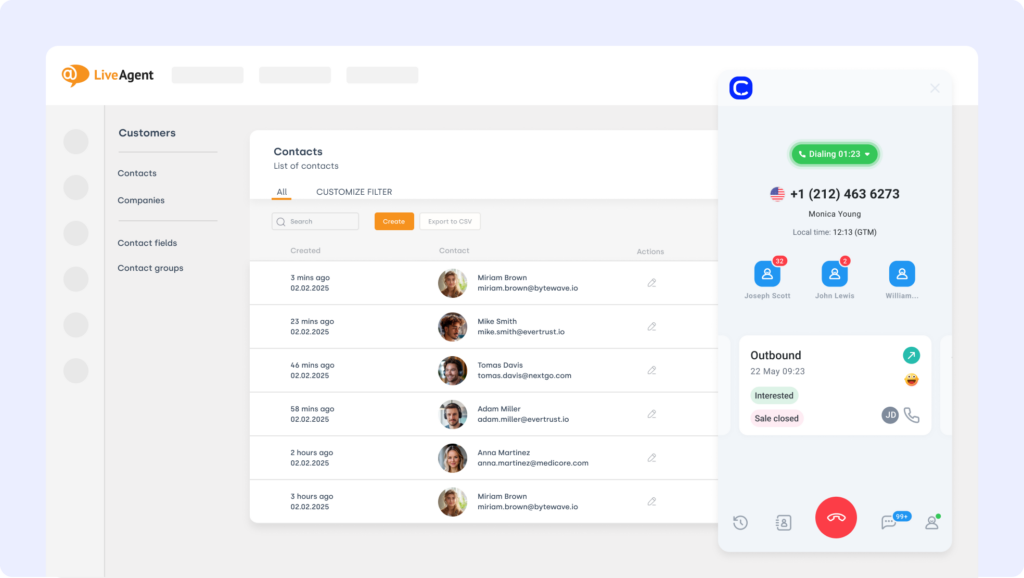
9. Zendesk (Support Platform)
Zendesk is a powerhouse for customer service management. The Playvox Zendesk integration helps QA teams evaluate agent performance using real ticket data, customer feedback, and support history.
Use Case
Trigger Playvox evaluations when Zendesk tickets are closed, escalated, or receive poor CSAT scores—allowing QA to focus where it matters most.
Benefits
- Base scorecards on real customer interactions
- Spot coaching needs by syncing CSAT and resolution time
- Align QA goals with support team KPIs
Key Features
- Connect ticket metadata to Playvox evaluations
- Trigger reviews from CSAT ratings or tags
- Map ticket categories to tailored QA forms
Pricing:
Zendesk pricing tiers include:
- Support Team: $19 per agent/month
- Support Professional: $55 per agent/month
- Support Enterprise: $115 per agent/month
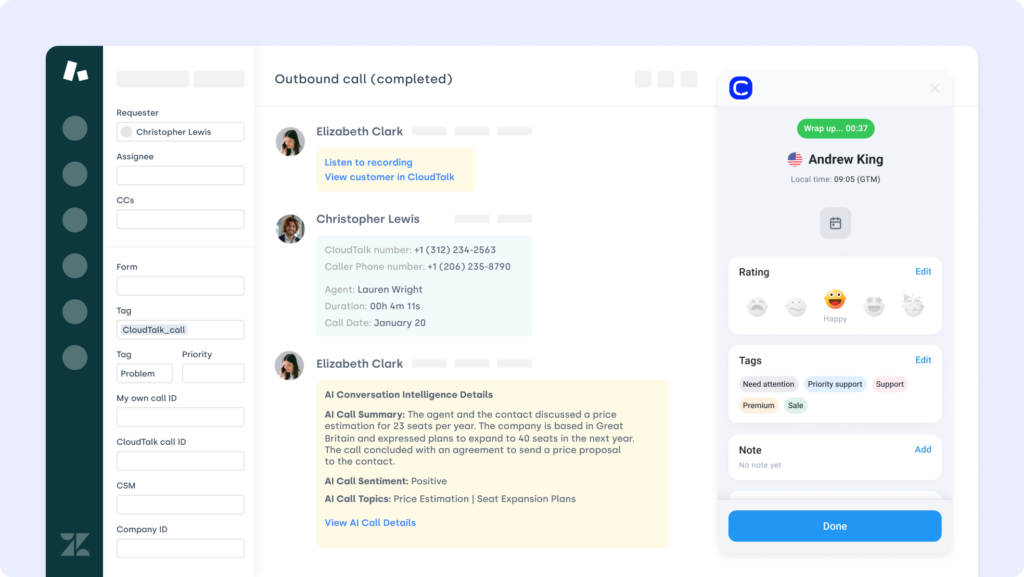
10. Microsoft Teams (Collaboration Platform)
Microsoft Teams is a hub for internal communication. The Playvox Microsoft Teams integration delivers QA insights directly to the people who need them—fast.
Use Case
Send Playvox alerts, scorecard results, or coaching assignments to relevant team channels or individual agents inside Microsoft Teams.
Benefits
- Close the feedback loop in real time
- Deliver QA outcomes directly where agents collaborate
- Reduce response lag on coaching and escalations
Key Features
- Post scorecard summaries in Teams channels
- Alert managers when coaching is assigned
- Sync evaluation results to team dashboards
Pricing:
Microsoft Teams offers a free plan, with premium features available in Microsoft 365 bundles:
- Microsoft 365 Business Basic: $6/user/month
- Microsoft 365 Business Standard: $12.50/user/month
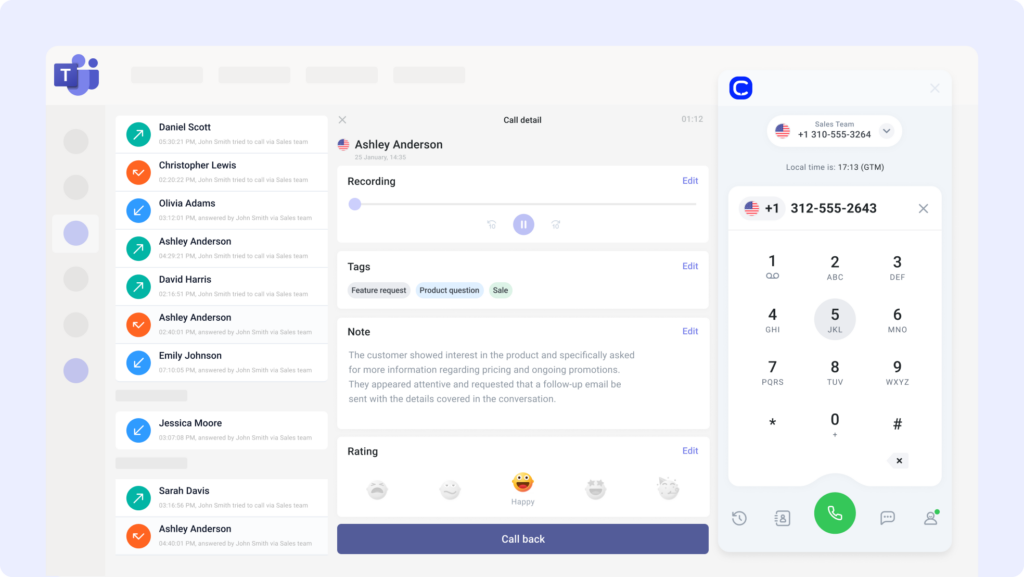
Benefits of Playvox Integration
Integrating Playvox with your existing tools turns it from a QA tracker into a full-scale performance engine. Here’s what you gain:
- Faster QA cycles with fewer clicks
Automatically pull in data from calls, tickets, or CRMs—so your team spends less time hunting for context and more time coaching. - More accurate, real-time evaluations
Trigger scorecards and feedback workflows based on live agent activity—ensuring your coaching reflects what’s actually happening. - Cross-platform visibility for coaches and managers
Connect Playvox with platforms like Salesforce or Zendesk to centralize agent performance data and eliminate silos. - Stronger agent development and accountability
Deliver coaching insights directly through tools like Microsoft Teams, so feedback lands faster and drives measurable improvement. - Custom workflows built around your tech stack
From Shopify orders to Pipedrive deal stages, your QA program can flex around the tools your agents already use.
Workflows aren’t broken—they’re just disconnected. Reconnect them!
How to Choose the Right Playvox Integration for Your Business
Choosing the right Playvox integration isn’t about features—it’s about fixing the friction in your workflow. Here are six key factors to consider before committing to a tool.
Identify Your Business Needs
Don’t just chase app logos—start with your bottlenecks. Are QA processes stuck in spreadsheets? Are coaching sessions delayed by missing call context? Look for integrations that eliminate those pain points first. For example, CloudTalk’s Playvox integration automatically syncs call data into QA workflows.
Prioritize Ease of Setup
If it takes a developer and two weeks to install, it’s not a solution—it’s a project. Favor tools with native Playvox integrations or no-code setup options. CloudTalk’s integration for Playvox connects in minutes, not months.
Choose Scalable Integrations
Can this tool scale with your support volume or team structure? You’ll want something that can grow with new queues, languages, or channels. CloudTalk’s call center solution supports multi-site teams, call routing, and multi-time zone workflows without breaking under load.
Assess Security and Compliance
Any tool that touches your QA data should meet your compliance standards. Look for solutions with secure authentication, role-based access, and audit logs. CloudTalk’s VoIP integration supports GDPR compliance and secure call recording.
Check Support Availability
When something breaks mid-shift, chatbots won’t cut it. Choose vendors with real, human support. CloudTalk’s support team helps you resolve issues fast—without endless ticket backlogs or auto-replies.
Evaluate Total Cost of Ownership
Free might work for one team—but break at scale. Factor in time saved, workflows improved, and maintenance required when weighing value. Tools like CloudTalk’s flexible pricing model let you scale with clarity and control.
How to Integrate Playvox with Other Platforms
Playvox supports several flexible methods for integrating with external systems—whether you’re syncing data from a CRM, triggering QA workflows from call activity, or sending evaluation results to a reporting tool.
Here’s how Playvox integrations typically work:
- Open REST API (Inbound + Outbound)
Playvox’s public API allows you to send and retrieve data programmatically. You can fetch scorecards, evaluations, and user info—or push external interaction data (like calls or tickets) into Playvox to trigger evaluations. - Webhook Support (Outbound Only)
Playvox can send real-time event notifications to external tools. For example, you can notify Slack or trigger a CRM update when an evaluation is completed or when an agent’s status changes. - Middleware Platforms (Zapier, Make)
While Playvox isn’t natively listed on Zapier, it works via webhooks or custom connectors to automate workflows between platforms like Google Sheets, HubSpot, or Front. - Direct App Integrations
Playvox provides native support for tools like Salesforce and Zendesk. These preconfigured setups enable direct syncing of agent performance data and QA workflows without custom development.
The right Playvox integration strategy depends on your stack, team size, and use case—but the goal is always the same: reduce manual work, increase visibility, and make QA a seamless part of daily operations.
Unify, Automate, and Elevate Your QA with Playvox Integrations
Manual QA is slow. Disconnected data slows it down even more.
With the right Playvox integrations, you can stop chasing call recordings, hunting for tickets, or guessing which agents need coaching. From CRMs to call systems, these connections turn Playvox into a real-time command center for performance.
Your agents get feedback faster. Your coaches get context instantly. And your customers? They get a better experience—every time.
Want to stop babysitting spreadsheets and start scaling smart? Try CloudTalk’s Playvox integration and bring clarity to your QA workflows.
Setup shouldn’t be a separate project. We can help you.
Sources:












